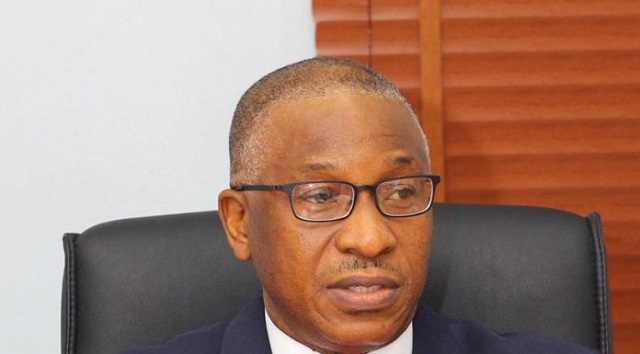The Bureau of Public Enterprises (BPE) has amended the timeline for the conclusion of the privatisation of Yola Electricity Distribution Company (Disco) in Adamawa State and the 987.2 megawatts (MW)- capacity Afam Power Generation Company (Genco) in Rivers State, THISDAY gathered Wednesday in Abuja
This is coming as data from the Office of Vice President Yemi Osinbajo has shown that Nigeria’s power sector could not earn a total of N530.868 billion in 2018 due to varied operational constraints, which included lack of adequate gas to power the Gencos; and poor distribution and transmission facilities, as well as water reserves issues.
The country’s electricity market had ended the year 2017 with a loss of N423.529 billion.
According to reliable sources in the BPE who spoke to the paper, the conclusion of the privatisation of both electricity assets would no longer happen this month, but within the first quarter (Q1) of 2019.
THISDAY gathered that 11 investors – eight for the Genco and three for the Disco, have been prequalified to proceed to the next stage of the privatisation exercise, which is the Request for Proposal (RfP) stage.
It was learnt that due to community disturbances at Afam, which resulted in the investors not being able to undertake a due diligence of the power generation facility, the privatisation agency was forced to amend its privatisation timetable for the plant.
That of Yola Disco, it was further learnt, was however not in any way affected by the renewed insurgency in the North-east, but BPE was said to have opted to undertake the privatisation of the two assets at once.
Speaking to THISDAY on the development, sources in the BPE explained that potential investors for the two power assets were aware of the situation.
“We had some slight delay, and it may extend a little bit because investors could not have access to the facilities, especially Afam. The community folks were demonstrating against the government – they had promised to do their road and provide other things, and you know they blocked the access road to the facility and when we needed to allow investors go in, they couldn’t go in,” said one of the BPE sources.
The source further noted: “But everything is on course, the first quarter of this year, we believe will be used to conclude on Afam and Yola. We are likely to finish in first quarter.”
The source also spoke to the paper on how transparent the exercise has been.
“We have not hidden any facts away from the investors; they are aware of everything happening in the country and I want to believe that they are confident with the process and that is why they are willing to go ahead. However, the insurgency affected only a small portion of the network and they are aware of that. We have made this known to the investors that this is what is available,” the source explained.
Continuing, the source stated: “It has been a long process and the investors have been very patient; so, we have to move and make sure we attain what we have to achieve.”
Asked how many investors have been prequalified for the next stage of the process, the source stated: “For Afam, we have eight and for Yola, initially they were five but only three have moved to the next stage which is for them to do due diligence and produce technical and financial proposals. We are at the Request for Proposal stage.”
Yola Disco was successfully privatised and handed over to the core-investor in 2013 when the government concluded the power privatisation exercise.
However, a force majeure was declared in 2015 by the company which cited insecurity in the North-east as its reason for not been able to operate the Disco. The Disco was thus repossessed by the government.
On the other hand, the transaction for Afam Genco could not pull through in 2013 reportedly on account of delay in signing key agreements such as the Gas Supply/Purchase Agreement (GSAA) and the Gas Transportation Agreement (GTA).
Meanwhile, data from the Office of Vice President, Osinbajo, have shown that Nigeria’s power sector could not earn a total of N530.868 billion in the year due to varied operational constraints which included lack of adequate gas to power Gencos; poor distribution and transmission facilities as well as water reserves issues.
The data indicated that this was different from 2017 when the sector failed to earn N423.529 billion. It noted that the average volume of electricity that was supplied to homes, industries and offices in the country every day within the period was 3,806 megawatts (MW) against 3,558MW that was supplied in 2017.
Similarly, the data indicated that 3,038MW of electricity was constrained from getting to consumers in the country in 2018, as against 2,417MW that was in 2017.
However, a total of 250,441 million standard cubic feet (mmscuf) of gas was supplied to the sector in 2018 unlike in 2017 when 84,094mmsuf was supplied.













